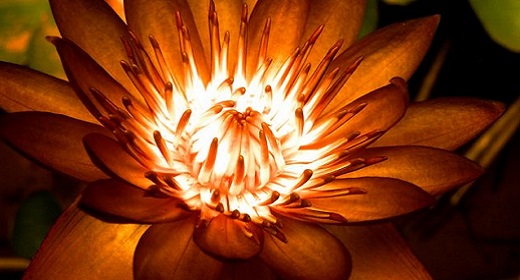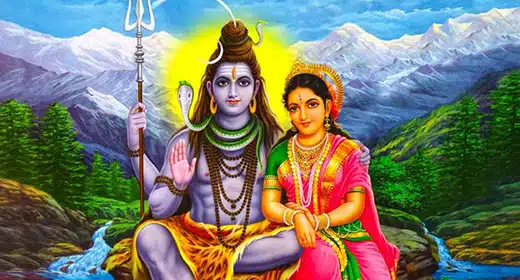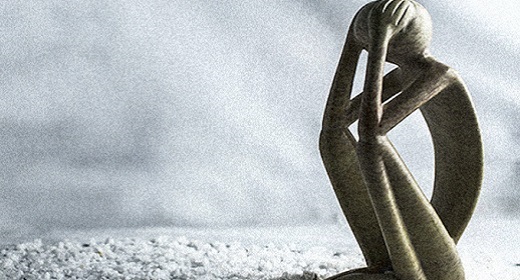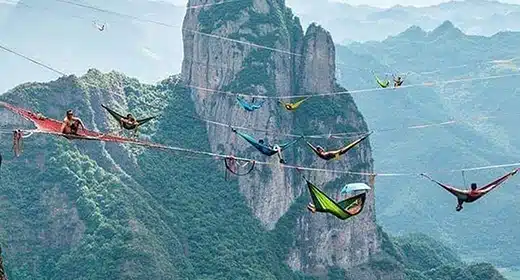Juan and I had agreed to talk about another interesting topic at the beginning of July…
When I phoned Juan to make an appointment, he told me that it was not the right time to meet. A good American friend of his had committed suicide by shooting herself with her partner’s gun. I really didn’t know what to say. I think I muttered something like «umm» or «I am sorry».
Then, Juan proposed that we should let some days go by before we met, and that the next topic for discussion should be exactly that: suicide. Of course, one feels sadness and sorrow faced with the suicide of a good friend, and one wonders why this can happen. From my point of view, this was an interesting topic… and somehow strange.
When I hung up, a large number of past images came to mind: a relative who had wanted to jump out of the window – and once nearly did-….a friend who had slit her wrists several times and been taken to hospital…. the innumerable attempts of a woman to poison herself, and her ending up in a psychiatric unit…a teenager who – disappointed in love – hung himself in his own garage…and someone who jumped onto the subway tracks, shocking all of us who saw it.
Recalling all these memories left an unpleasant taste in the mouth and made me think that suicide is certainly sinister, but something that should not leave us indifferent. Especially because, in spite of its frequency, suicide is taboo in our otherwise sensationalist culture. And even so, we all know someone who has tried – or even succeeded – in leaving this world before their appointed time because they lacked a sense of meaning in their life.
There are even the fleeting and incomprehensible moments in which suicidal or self-destructive ideas have gone through our own minds. Reflecting on this made me feel a sort of contradiction:
I thought of the schools of behavior that, throughout history, exalted suicide not only as a brave act (like warriors who voluntarily sacrificed themselves, fundamentalist terrorists, or kamikaze pilots) but also as an aesthetic act (like artists and writers who committed suicide to exalt decadence, as a triumph of their own willpower over an incomprehensible and hostile world), or even as something necessary for certain creed or ideal (sects that perform mass suicides, renouncing worldliness and yearning to reach higher planes of existence as soon as possible).
So is suicide the most despicable or the most admirable act that a person can carry out? An inner voice was telling me that there was something wrong with all these thoughts, and I hoped that Juan would shed some light on the darkness of suicide.
At the beginning of July, and after a frugal lunch in the usual restaurant, we headed for a quiet square in the center of Barcelona and I asked him all the questions that came to my mind, and which ended up in the article below.
- Juan, generally speaking, how do you see the phenomenon of suicide in our society? Is it an escape from a desperate life situation? Does it have any value? I am asking because there are many famous cases of suicide in Western history that make one think. From the Oriental point of view, how is suicide considered?
Suicide is a highly relevant topic nowadays because the news frequently shows young people blowing themselves up in a terrorist attack, or desperate people living in large cities who decide to end their lives. There is hardly any knowledge about what happens when someone commits suicide.
In the Western world, we even believe that suicide can provide relief from pain and suffering. However, different Eastern traditions have studied death in detail. For example, according to Shintoism, a human being is destined to live a given number of years. Thus, if someone shortens his or her life by committing suicide, the time that was still to be lived on Earth is spent in an intermediate state, a sort of limbo, full of confusion and discomfort.
From this point of view, any ceremony performed to help the suicide victim would have no effect until the complete lifetime that the person was destined to live is over. According to this tradition, suicide is a useless way to escape from pain, because it puts the person in an even more unpleasant situation… in a state between life and death, in which there is no possibility to change or to make progress, nor is there any way out. Consequently, the person who commits suicide to be released from intense suffering does not escape from anything; instead they extends a negative state that might last less time if they were still alive and sought ways to solve their problems.
- hat reminds me of the film “The Others”, in which two children and their mother are in that intermediate state, that limbo, without knowing that they have died. In the film, the mother (Nicole Kidman) suffocated her children and then shot herself so that the Nazis couldn’t capture them….
In this case, suicide would not only represent an act of ignorance but also a sort of self-damnation even worse than the situation she wanted to escape. Suicide, regardless of how it is done, also implies that the person denies responsibility.
The Taoist tradition states that before being born, every person chooses how and where he/she is to live and the goals they are to achieve in this lifetime. Every person is born with a purpose, and responsibility for this is taken through a pact with Heaven, the Universal Consciousness. This agreement is two-fold. On the one hand, Nature provides the ideal circumstances needed to accomplish the goal. On the other hand, the person is committed to work towards their goal, to find a profession or setting in which to develop their original purpose, which in the end is always related to consciousness-raising. Every human being is born with this responsibility, which must be fulfilled as part of the pact.
When a person denies this duty and commits suicide, they break the agreement with Heaven. In the Taoist system, to break the agreement is to set the conditions for suffering, and if we are alive, this is manifested in different degrees of disease, from anxiety and mental suffering to more physical illnesses.
The agreement with Heaven is located in the very center of heart, not in the physical organ but in the energetic center associated with the heart. So that means that we all come to this world with a purpose that we have to fulfill because is part of the “sacred contract” that we signed before birth. But how do we know that we are following the right path in life? Is there any sort of sign? An individual might not be aware of the contract you’re talking about, and just go through all sorts of difficulties in life until sooner or later, I suppose that, depending on the level of consciousness, they end up fulfilling what was established in the contract…
At the moment when a person turns significantly away from their original direction and insists on following the wrong path, the path they are not interested in, ignoring the signs that Heaven provides, like dreams showing the right direction, other symptoms begin to manifest themselves. These come in the form of small crises, nightmares, thefts, that gradually become more and more intense and may end up as a fatal disease. This would be a sign that there is no way to re-direct the individual from the wrong path, and that Heaven has decided to recycle their life. In other words, there are hopeless cases.
- was thinking about the consequences that this can have on the family structure. If you end up dying like you just mentioned or you commit suicide, or if you accumulate a number of unsuccessful suicide attempts or episodes of self-destruction, can these events predispose future generations to do the same?
We are born in a family structure that has been established throughout many generations. Everything we do in life either introduces new precedents or repeats those that our ancestors set in the past. A person is sometimes born into a family in which someone has committed suicide, and the time might come when that person will think about doing the same thing. But right at that moment, the person will have a precious chance to take a new decision. If no new decision is taken, then, as the I Ching says, “we will have to wait ten thousand years”. That means that the cycle will be repeated again.
It is extremely important that anyone wanting to make progress investigates whether there is a history of suicide in their family. The tendency to put an end to one’s life intentionally may come in different forms like the desire to die by injection, to poison oneself, to jump out of a window or to slit one’s wrists. This means that there is a wound in the family structure that must be healed, and that it is possible that we or our children, or any of the coming generations will manifest this tendency because the act is latent in our genes.
- That’s curious. I now understand why in certain moments of my life, and for no apparent reason, I had sudden and repeated suicidal thoughts of varying intensity, like when I was driving my car, in front of a window or with a knife in my hand. Fortunately, those were only fleeting ideas and I didn’t pay much attention to them. Might they be caused by a case of suicide in my family? I am not aware of one, but if taking into account the voluntary degradation of our life in its multiple manifestations….
There are people who don’t know why they have suicidal ideas. If they investigate their family, they might find that they are predisposed to such ideas, and that perhaps, at that very moment, they are facing the chance of taking a new decision. Suicide does not only mean taking a pill or blowing one’s head off, but it can also be carried out slowly, by becoming addicted to alcohol or drugs while knowing that they might be fatal after some time.
Sometimes this appears as a hidden tendency towards progressive self-destruction, like intentionally eating harmful food or seeking painful relationships. Self-destruction denies the existence of love and self-esteem, and is disconnected from the heart, which is the place where our inner guide dwells, the place where our agreement with Heaven is written.
- All right. But once we have identified a case of suicide in our family, what can we do?
We must be aware that suicide was the option taken in the past once or several times, and that there is a tendency in our family towards it. The person must be self-aware. As soon as they are conscious of this weakness in their genetic structure, it is recommended to go on a retreat that can last some days, and to meditate in a quiet place to take a new decision. The person should ask herself/himself many questions and examine the problem for some days. If they reach the conclusion that they want to live, the next step is to establish a purpose in life. The clearer the purpose, especially if it benefits others as well, the stronger the power to counteract any self-destructive tendencies. To want to be here and to have a purpose in life that is not only beneficial for oneself but also for others introduces an altruistic viewpoint. Suicide is a withdrawal into the most selfish state of the mind.
The antidotes are the altruistic viewpoint and the altruistic action. This would be a suggestion for someone who knows there is a tendency to suicide in their family. That’s useful for those of us conscious enough as to react and do something for ourselves and our family.
But I wonder how we can help self-destructive people, who are reluctant to understand that alcohol, drugs, or other damaging substances or behaviors will lead to a stupid death…. I know a rather close case and I would like to do something for him.
In severe cases of self-destruction, the person withdraws more and more into themselves, becoming increasingly self-centred. As consciousness is light, a function of the fire element (which is why it’s related to Heaven, the provider of light), as the consciousness gets narrower, clarity gives way to darkness. This can even reach the point where there is so much darkness that the only way to change the tendency is with someone else’s help. Sometimes, this external help does not achieve its goal by talking and suggesting, because the clarity necessary to grasp that information or advice is no longer present in a person with severe self-destructive behavior.
In this case, light may be provided for the consciousness of the suicidal person as follows:
- the person who wants to help draws light into the central channel and irradiates that light through the aura, making it available to the friend or acquaintance.
- If the person who wants to help does not know these practices, it is appropriate that every time we think about our friend or acquaintance, we visualize them surrounded by an aura of light, and this is done with affection, because it is precisely the energy of love that is urgently needed.
With these practices, we must be aware that everything we do with our intention, far from being a fantasy, works at a subtle level and is directed towards the consciousness of the individual we want to help. We don’t communicate with the mental aspect of the person (as there is neither light to grasp verbal information nor strength to do anything with the information) but with our friend’s inner guide, with that point of light at the level of the heart in which our agreement with Heaven is located.
This is a fairly simple way to give someone a lift without having to say anything. This practice can be applied to help any person that is lost and requires light, and it is our duty to do it with affection and energy of the heart so that we provide that which is lacking.
- And what about if we are too late? If our relative or friend has already committed suicide, is there anything we can do? You previously mentioned limbo, and a waiting period, I don’t know whether it is useful to pray for them or send them some kind of energy…
If someone we know has already committed suicide, it is important that every time we think about that friend, we do it with light surrounding her/him, with love and affection. If we know the practices, we can make the light available to that person and encourage him/her to follow the light as soon as possible. We don’t really know whether or not they have to wait in the limbo, but what we certainly know is that if we make something available, it is available. Thus, the person we want to help will have an option that might possibly be used.
In summary, committing suicide is not a solution but an extremely selfish and destructive action, by which suffering is not released but intensified. I read somewhere that the Tibetans say that someone who dies is no longer in the physical dimension and that their consciousness is intensified ten times. Therefore, just to get an idea of what can happen, if a person is already desperate in this life, everything will be multiplied by ten in the state after death by suicide.
How different seem the hara-kiri of the brave samurai, the drug overdose of that wonderful poet or the bullet in the head of that famous singer… and the innumerable anonymous cases who decided to end their lives, hoping to ease the pain of a meaningless existence. Let’s forget “Goodbye, cruel world” and make room for “Hello, universe of infinite possibilities”. It’s worth trying, isn’t it?















































